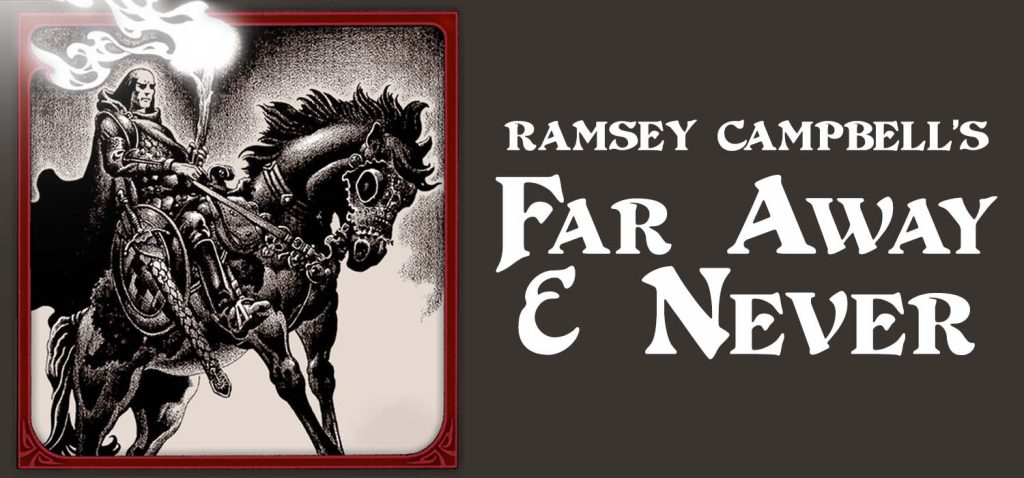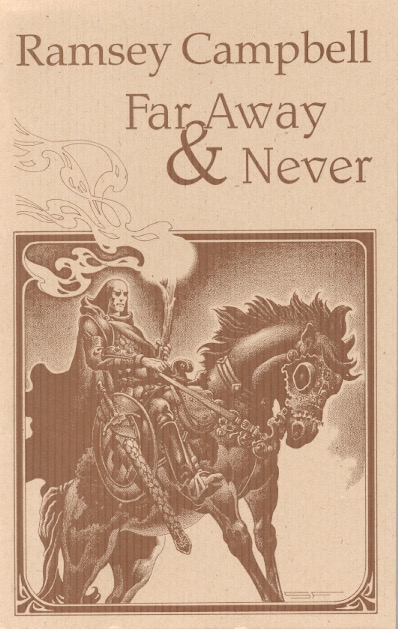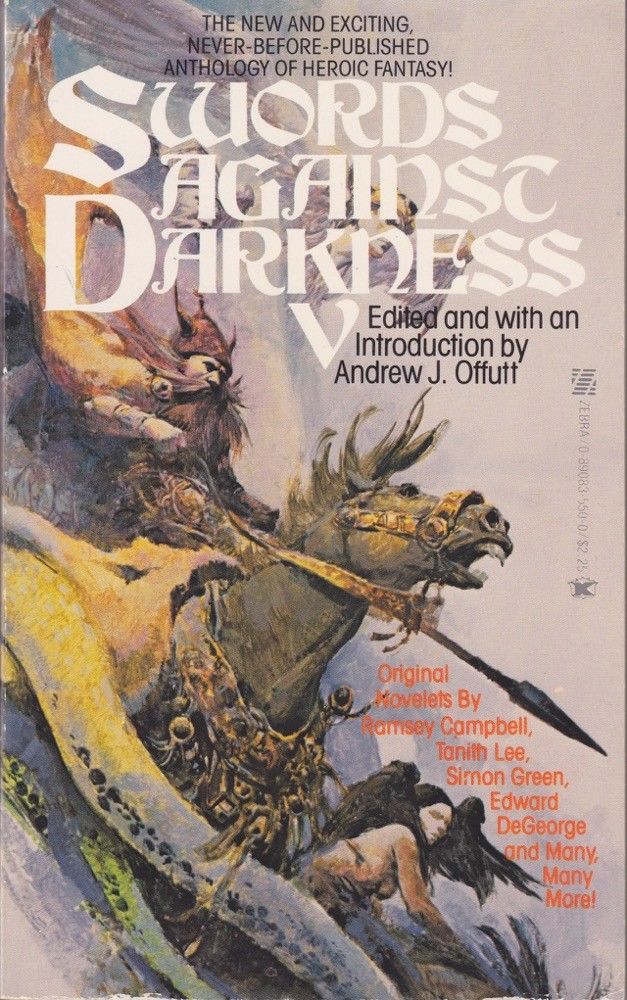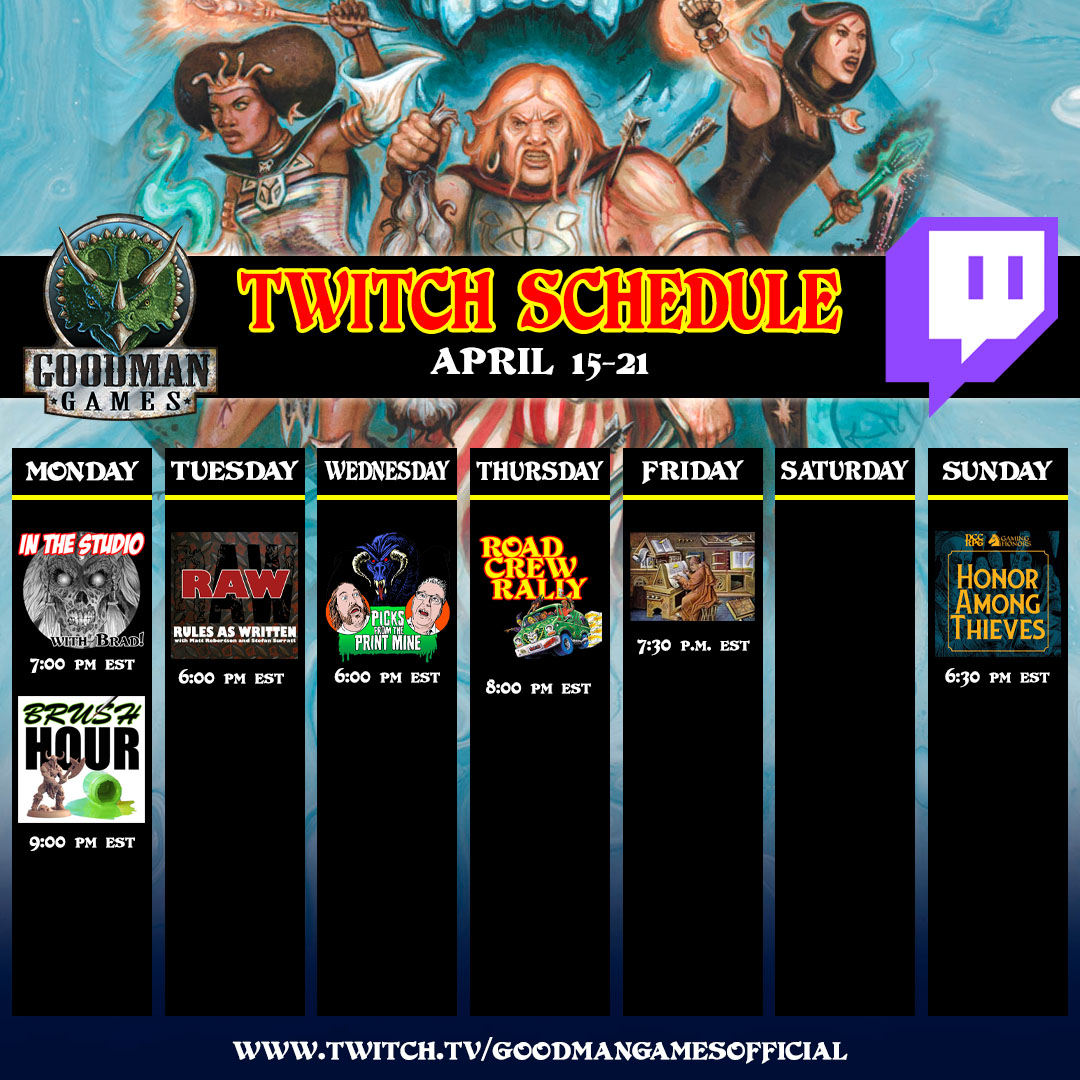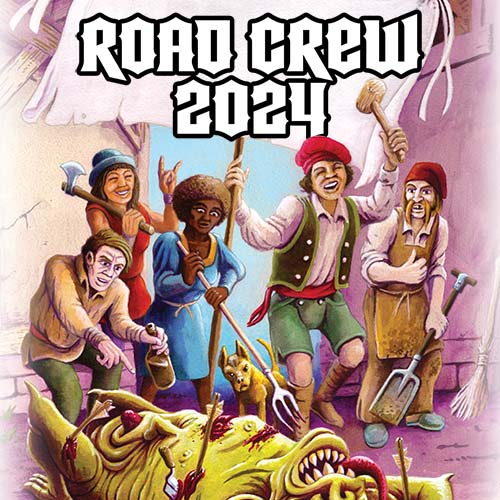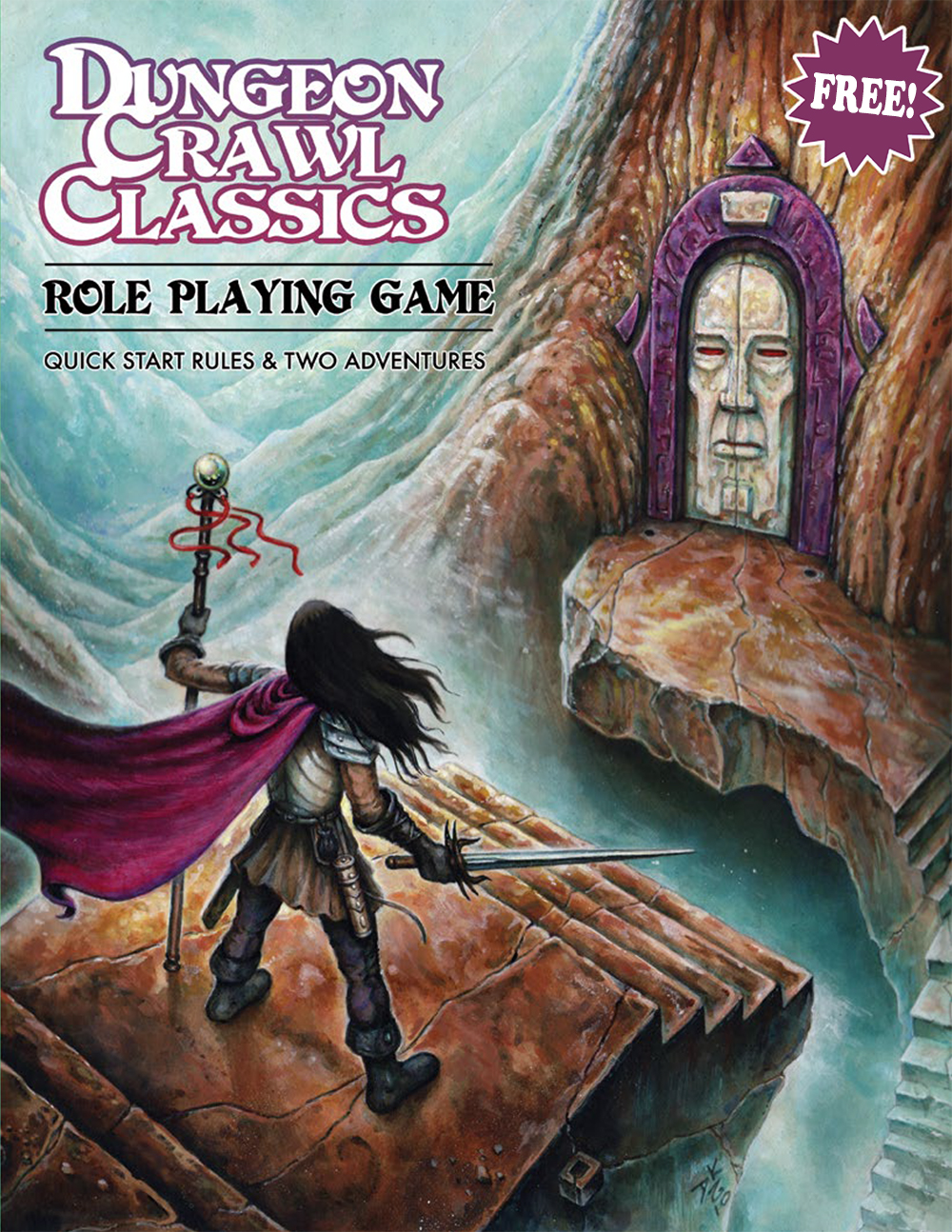A Look at Ramsey Campbell’s Far Away & Never
by Bill Ward
Legendary British Horror author Ramsey Campbell’s prolific and best-selling output has been the stuff of nightmares – in a good way! – for more than a half-century. From his Lovecraftian roots to his contemporary novels of psychological and supernatural horror, Campbell continually pushed the frontiers of both his chosen genre and his own stylistic expression. A style Stephen King described as “so uniquely Campbell that it might as well be trademarked,” infusing a body of work that, at least in the opinion of uber-critic S.T. Joshi, ensures “future generations will regard [Campbell] as the leading horror writer of our generation, every bit the equal of Lovecraft or Blackwood.” But Campbell hasn’t had to wait for future generations to garner his honors, winning nearly every applicable literary award in his lifetime, plus more than a few with names like “Grand Master” and “Lifetime Achievement” in the title. In short, Campbell is right at the top of the Horror pantheon – and once upon a time, he wrote some sword-and-sorcery.
Campbell’s sword-and-sorcery fiction, his entire fantasy output aside from some stories completed from Solomon Kane fragments for Baen Books, is collected in Far Away & Never, a slim volume released by Necronomicon Press nearly 25 years ago – but recently updated with an additional story and reprinted by DMR Books. Four stories in the collection chronicle the adventures of the wandering swordsmen Ryre that Campbell wrote by request for Andrew J. Offutt’s classic anthology series Swords Against Darkness. Others are works of dark fantastic secondary world horror, and one is a Howard pastiche in the form of Campbell’s contribution to the odd round-robin novel Ghor, Kin-Slayer.
Ryre, a name that connotates to my ear both wryness and ire, is a grim blade in a grim land. Audiences met him in the first volume of Swords Against Darkness in 1977 in a creepy tale that has since achieved cult status,“The Sustenance of Hoak.” From a fiery and fast-paced-start which sees Ryre force himself into the decrepit walled town of Hoak, rumored to harbor a fabulous treasure, the story squirms into “The Shadow Over Innsmouth” territory as he interacts with a population overcome with a sinister lassitude. At Hoak’s center, a malignant tree thrives, worshiped by the population, the offshoots of its roots found in every hut, every domicile, sweetly excreting the only sustenance the enslaved denizens can stomach. Ryre, in the true fashion of every man of action outsider to ever get mixed up in small-town intrigue from Dashiell Hammett’s Continental Op to Clint Eastwood’s Man With No Name, is the explosive catalyst needed to tip the whole system on edge, and he does so with fire and sword.
The Ryre stories have some of the strange dark poetry of the grotesque as found in the works of Clark Ashton Smith, but backed up with a pace and directness more akin to Leiber and Howard. In “The Changer of Names,” probably my favorite of the bunch, Ryre is in another accursed town among a diseased and numb population being subverted by a bizarre stranger. We are introduced to odd details of world-building such as the tradition of ‘name fights,’ combats to the death between glory-hungry strangers who share the same name. But it’s no bit of color, the odd notion is integral to the plot of the story as it turns out the magical stranger is literally infusing his devotees with the names and identities of famous heroes – including, in more than one instance, Ryre himself.
Two more increasingly weird tales round out Ryre’s journey and, alas, that’s all we’re going to get. The Ryre tales are a balance of horror and swordplay, quintessential sword-and-sorcery, and they inject just enough of Ryre’s own psychological and emotional self-reflection in the midst of the horrifying and the inexplicable to transmit this shock to the reader. While we don’t know much about Ryre himself — he’s a mercenary, he had once been a slave, he’s six and a half feet tall – we have a window into his thoughts and character during these short snapshots of his wanderer’s life. Ruthless, self-important to his own glory, he is nonetheless fundamentally decent and a despiser of injustice. He’s the accessible center in a suite of stories of a relentlessly grim and ferociously odd nature.
“Flapping down from the pale sky, in a flock which stank of caverns and worse, came wings. Their span was greater than the spread of his arms. They were the blotchy white of decay; between their bony fingers, skin fluttered lethargically as drowned sails. All this was frightful—but there was nobody to speak of between each pair of wings, only a whitish rope of flesh thin as a child’s arm. Yet as a pair of wings sailed down near him, Ryre saw a mouth gape along the whole length of the scrawny object. Its lips resembled a split in fungus, and it was crammed with teeth.” (from “The Pit of Wings”)
The vile creatures and skin-crawling environments of the Ryre stories, however, seem almost straight-forward in comparison to Campbell’s dark fantasy tales “The Stages of the God” and “The Song at the Hub of the Garden,” two stories that could apply to Stephen King’s assessment in his 1981 survey of the Horror genre, Danse Macabre: “In a Campbell novel or story, one seems to view the world through the thin and shifting perceptual haze of an LSD trip that is just ending … or just beginning.” In the first, a deposed monarch, poisoned and on the run, shelters in a forbidden shrine that gives him a power commensurate with the hallucinatory mythic journey he is enacting. “The Song at the Hub of the Garden,” is yet stranger still, weaving a warrior’s journey through a world of name- and deed-stealing (an idea later developed in the aforementioned Ryre story “The Changer of Names”) with possibilities of false memory and sorcerous entrapment.
Far Away & Never is a slender volume that packs a big punch; a small, well-appointed annex housing the handful of fantasy stories from a master of the genre next door. Dark tales that nonetheless let a little light in from time to time, never wallowing in grimdark, and about as capital letter ‘Weird Tales’ as you can find. While one always wishes for more of a good thing, fans of sword-and-sorcery can be thankful that Ramsey Campbell sojourned briefly in the lands of Howard, Leiber, and Smith, and shared with us a bit of his own dark vision of the surreal and the sinister.
This essay is based on the 1996 Necronomicon Press edition of “Far Away & Never.”


